Related Research Articles

The Oneida Community was a perfectionist religious communal society founded by John Humphrey Noyes and his followers in 1848 near Oneida, New York. The community believed that Jesus had already returned in AD 70, making it possible for them to bring about Jesus's millennial kingdom themselves, and be perfect and free of sin in this world, not just in Heaven. The Oneida Community practiced communalism, group marriage, male sexual continence, Oneida stirpiculture, and mutual criticism.

Shays's Rebellion was an armed uprising in Western Massachusetts and Worcester in response to a debt crisis among the citizenry and in opposition to the state government's increased efforts to collect taxes on both individuals and their trades. The fighting took place in the areas around Springfield during 1786 and 1787. Historically, scholars have argued that the four thousand rebels, called Shaysites, who protested against economic and civil rights injustices by the Massachusetts Government were led by Revolutionary War veteran Daniel Shays. By the early 2020s, scholarship has suggested that Shays's role in the protests was significantly and strategically exaggerated by Massachusetts elites, who had a political interest in shifting blame for bad economic conditions away from themselves.
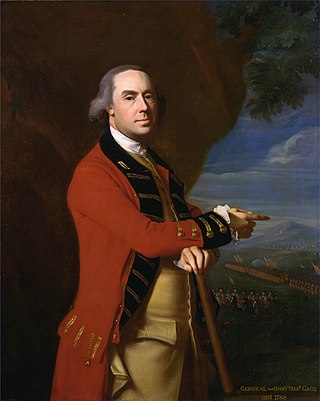
General Thomas Gage was a British Army officer and colonial administrator best known for his many years of service in North America, including serving as Commander-in-Chief, North America during the early days of the American Revolution.

John William McCormack was an American politician from Boston, Massachusetts. McCormack served in the United States Army during World War I, and afterwards in the Massachusetts State Senate before winning election to the United States House of Representatives.

Daniel Shays was an American soldier, revolutionary and farmer famous for allegedly leading Shays' Rebellion, a populist uprising against controversial debt collection and tax policies that took place in Massachusetts between 1786 and 1787. The actual role played by Shays in the rebellion is disputed by scholars.
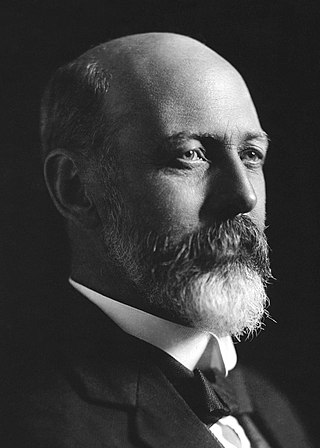
Sir Joseph Cook was an Australian politician and trade unionist who served as the sixth prime minister of Australia from 1913 to 1914. He held office as the leader of the Liberal Party, having previously been leader of the Anti-Socialist Party from 1908 to 1909. His victory at the 1913 election marked the first time that a centre-right party had won a majority at an Australian federal election.
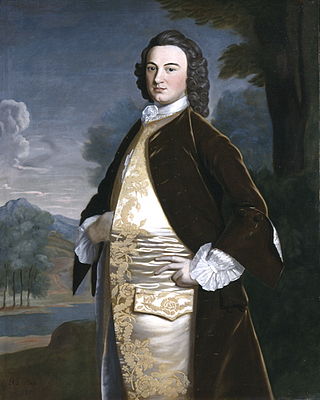
James Bowdoin II was an American political and intellectual leader from Boston, Massachusetts, during the American Revolution and the following decade. He initially gained fame and influence as a wealthy merchant. He served in both branches of the Massachusetts General Court from the 1750s to the 1770s. Although he was initially supportive of the royal governors, he opposed British colonial policy and eventually became an influential advocate of independence. He authored a highly political report on the 1770 Boston Massacre that has been described by historian Francis Walett as one of the most influential pieces of writing that shaped public opinion in the colonies.

William Monroe Trotter, sometimes just Monroe Trotter, was a newspaper editor and real estate businessman based in Boston, Massachusetts. An activist for African-American civil rights, he was an early opponent of the accommodationist race policies of Booker T. Washington, and in 1901 founded the Boston Guardian, an independent African-American newspaper he used to express that opposition. Active in protest movements for civil rights throughout the 1900s and 1910s, he also revealed some of the differences within the African-American community. He contributed to the formation of the National Association for the Advancement of Colored People (NAACP).

Caleb Strong Jr. was an American lawyer, politician, and Founding Father who served as the sixth and tenth governor of Massachusetts between 1800 and 1807, and again from 1812 until 1816. He assisted in drafting the Massachusetts State Constitution in 1779 and served as a state senator and on the Massachusetts Governor's Council before being elected to the inaugural United States Senate. A leading member of the Massachusetts Federalist Party, his political success delayed the decline of the Federalists in Massachusetts.
Thomas Danforth was a politician, magistrate, and landowner in the Massachusetts Bay Colony. A conservative Puritan, he served for many years as one of the colony's councilors and magistrates, generally leading opposition to attempts by the English kings to assert control over the colony.

The succession crisis in the Latter Day Saint movement occurred after the killing of the movement's founder, Joseph Smith, on June 27, 1844.
John Howland was an English indentured servant who accompanied the English Separatists and other passengers when they left England on the Mayflower to settle in Plymouth Colony. In later years, he was an executive assistant and personal secretary to Governor John Carver.

Albert Brisbane was an American utopian socialist and is remembered as the chief popularizer of the theories of Charles Fourier in the United States. Brisbane was the author of several books, notably Social Destiny of Man (1840), as well as the Fourierist periodical The Phalanx. He also founded the Fourierist Society in New York in 1839 and backed several other phalanx communes in the 1840s and 1850s. His son, Arthur Brisbane, became one of the best known American newspaper editors of the 20th century.
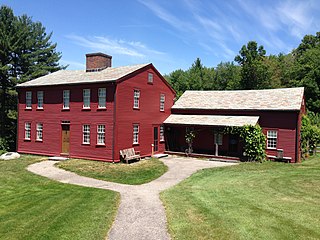
Fruitlands was a utopian agrarian commune established in Harvard, Massachusetts, by Amos Bronson Alcott and Charles Lane in the 1840s and based on transcendentalist principles. An account of its less-than-successful activities can be found in Transcendental Wild Oats by Alcott's daughter Louisa May Alcott.

George Nixon Briggs was an American lawyer and politician from Massachusetts. A Whig, Briggs served for twelve years in the United States House of Representatives, and served seven one-year terms as the 19th Governor of Massachusetts, from 1844 to 1851.
Spencer Phips was a government official in the Province of Massachusetts Bay. Born Spencer Bennett, he was adopted by Massachusetts Governor Sir William Phips, his uncle by marriage, whose name he legally took. Phips served for many years in the provincial assembly, and on the governor's council, before receiving an appointment as lieutenant governor in 1732, a post he held until his death. He was twice formally acting governor.

Richard Howland Hunt was an American architect and member of the Hunt family of Vermont who worked with his brother Joseph Howland Hunt in New York City at Hunt & Hunt.

James Ferdinand Morton Jr. was an anarchist writer and political activist of the 1900s through the 1920s especially on the topics of the single tax system, racism, and advocacy for women. After about 1920 he was more known as a member of the Baháʼí Faith, a notable museum curator, an esperantist and a close friend of H. P. Lovecraft.

Joseph Havens Richards was an American Catholic priest and Jesuit who became a prominent president of Georgetown University, where he instituted major reforms and significantly enhanced the quality and stature of the university. Richards was born to a prominent Ohio family; his father was an Episcopal priest who controversially converted to Catholicism and had the infant Richards secretly baptized as a Catholic.
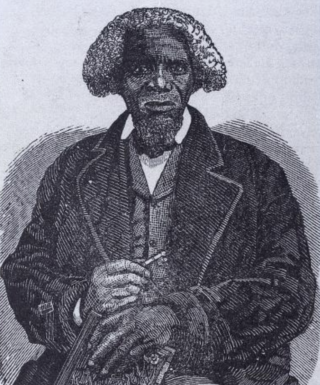
Greensbury Washington Offley was an American slave narrative author and minister. Born into slavery in Maryland and eventually freed, Offley wrote A Narrative of the Life and Labors of the Rev. G. W. Offley, a Colored Man, Local Preacher and Missionary (1859), one of only six slave narratives published in Connecticut.
References
- 1 2 3 Lewis, James (2002). The encyclopedia of cults, sects, and new religions. Amherst, N.Y: Prometheus Books. p. 34. ISBN 9781573928885. OCLC 681492748.
- 1 2 3 Widdicombe, Toby; Morris, James M; Kross, Andrea L (2017). Historical dictionary of utopianism. Lanham, Maryland: Rowman & Littlefield. p. 27. ISBN 9781538102176. OCLC 1011125989.